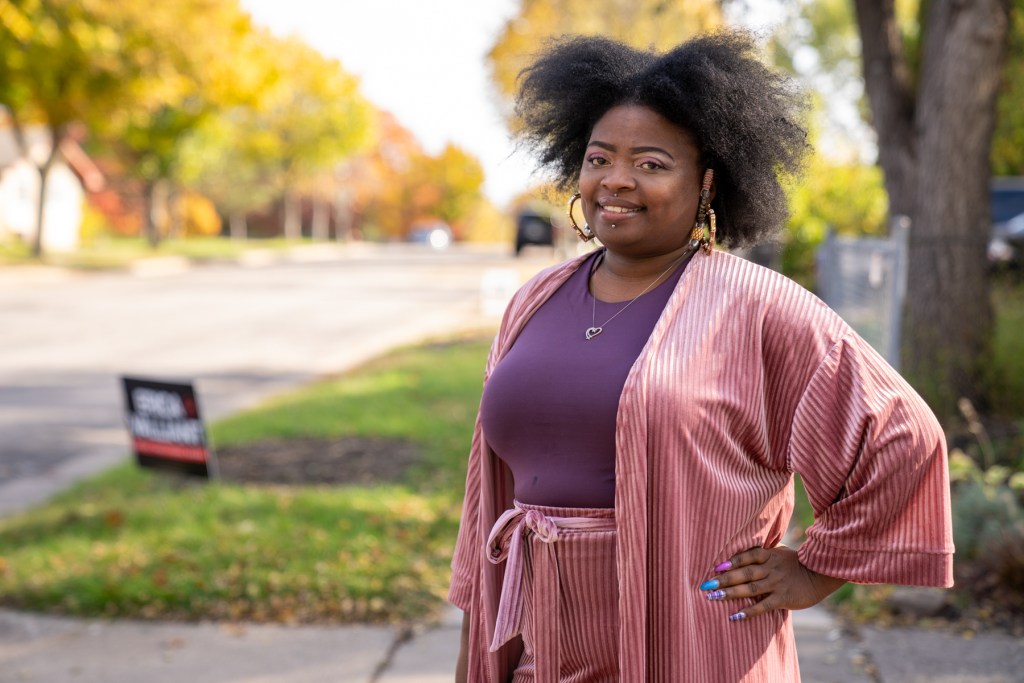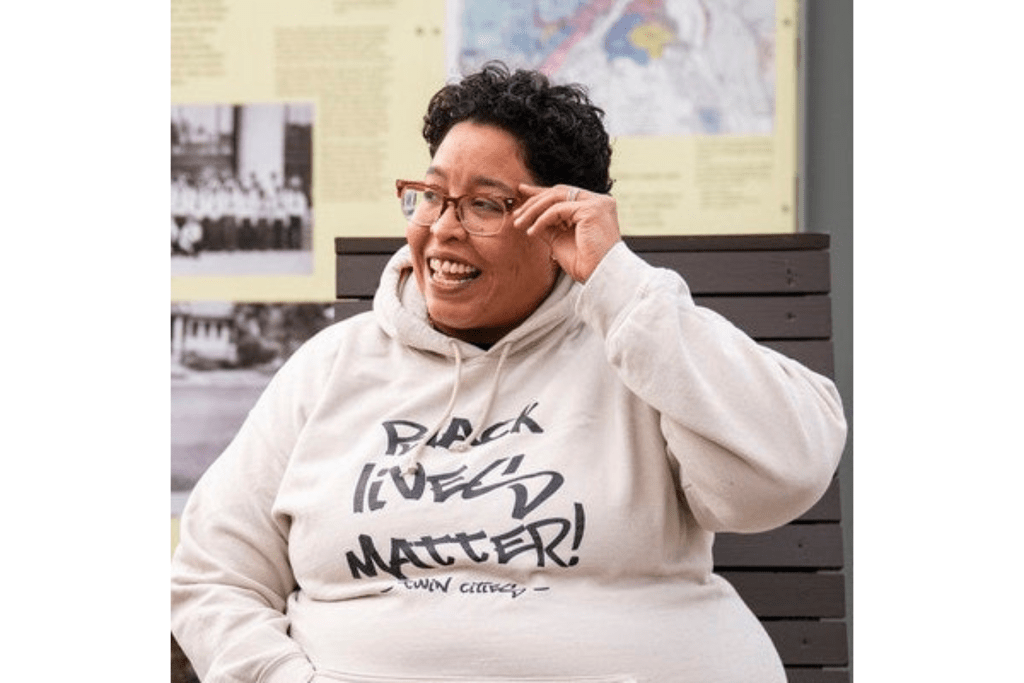Sahan Journal interviewed all seven St. Paul school board candidates: Chauntyll Allen, Yusef Carrillo, Zuki Ellis, Carlo Franco, Abdi Omer, Erica Valliant, and Gita Rijal Zeitler. Voters can choose four.
Name: Carlo Franco
Age: 28
Current day job: Youth engagement and training manager with the city of St. Paul’s Right Track Program
Kids in the district: No
Neighborhood: West Side
Carlo Franco is a fourth-generation resident of the West Side of St. Paul. He’s also a first-generation college graduate.
“I have a lot of pride in my community,” he said. “I’m really centered around the saying ‘it takes a village,’ because I was a product of our village.”
After he earned his degree in child psychology and leadership from the University of Minnesota, he returned to his alma mater, Humboldt High School, as a restorative practices coordinator. He’s also served as a sports coach and coordinated youth programming for the city’s Parks and Recreation Department.
Now he works for the city of St. Paul, coordinating outreach and recruitment for its youth training and internship programs. Over the years, he’s mentored “hundreds and hundreds” of young people, he said.
“The real piece for me is centering young people in all this work,” he told Sahan Journal.
This interview has been edited for length and clarity.
Why are you running for St. Paul school board?
- Community-centered leadership that’s accessible and that will continue to show up and actually deliver on the things that the community wants.
- Streamlining our out-of-school-time network with our in-school network. Wrapping the conversations about community-first public safety into programming that keeps young people busy and connected to things they really want to do.
- Financial empowerment. Ensuring that young people have the financial tools and management opportunities to create the path they want in their life.
- College and career readiness. We need to really open up the door to young people, asking them what they want to do and preparing them for that, making sure that there is a pathway for every single young person who leaves our district to have a successful future.
In 30 seconds or less, why should voters choose you?
I want to be a bridge between the city of St. Paul and the school district. We need to make sure our public services are aligned and our dollars are being spent well. I’m a youth worker. I have worked on behalf of and in partnership with our young people, families, and communities across St. Paul. Every young person regardless of their zip code deserves a high-quality public education. We’re going to do that through partnership with expert educators that are delivering every day for our young people. We need to center our young people in the services that we provide, and we need to include families in that conversation. I am an organizer. And I’m from the West Side, and our voices haven’t been heard on the school board in over two decades.
List three things you think are going well in St. Paul Public Schools.
- Investment in career pathways. There has been more emphasis on that recently, which I appreciate. The programs for young people earning an associate’s degree at the same time or before they are graduating with their high school diploma do not get enough credit.
- We have a lot of very solid educators in our district who come to work every day delivering high-quality services. Not only educators, but employees in general. Our nutrition services are able to offer free lunch and breakfast to every single young person in our district. And that’s important.
- Returning to yellow buses for some of our high school sites.
St. Paul Public Schools has historically seen many kids from immigrant families leave the district for charter schools. What do you think the district is doing well to attract and retain immigrant families, and how should it improve?
The opening of the East African Magnet School is a huge asset. That is something that community has been asking for for a really long time. For us, as St. Paul Public Schools, to deliver on that is huge. Same with our Spanish immersion school, and the Hmong language schools as well. We’re doing better at leaning into the culturally specific curriculum.
What I think we struggle with is really being OK with making direct changes. We need to have a process that’s not as bureaucratic to take care of needs on the individual school level. We’re not actually listening to families. Our families have ideas on what they would want for their kids’ education. We need to have more culturally relevant curriculum and content, and I think we’re moving towards that. However, the structure, the culture, the climate, are things that we need to be in partnership with our families on. Those are reasons why some folks are leaving our districts and going to more culturally specific charter schools. We need to do better community engagement. The next step is actually delivering and doing the work. Listen to families and figure out as a district how we can deliver.
Last year, the district saw a few very scary incidents at schools—including one high school student fatally stabbing a classmate. What do you think the district is doing well in regards to school safety, and what does it need to do differently?
There’s an additional investment in school support liaisons, who are essentially a replacement for security in the building. I think in some of those spaces, we’re doing a good job—going through an academy, providing those folks with a level of de-escalation training, emergency management plans and so forth. We could potentially do better in recruiting and retaining some of the employees or coaches that work in communities. That would not only support that safety conversation, but also the enrollment conversation. Folks are going to choose our schools because they know who the youth workers are inside and outside of the school. We also need to invest in restorative justice practices where young people take ownership in their community.
What’s another issue that would be a priority for you on the school board, and how would you approach it?
Extracurricular programming. Arts and culture. That’s huge, and how we really empower our families. Really uplifting the cultural traditions of our new immigrant families and the families who have been here for a long time. We need the families’ involvement, and we need to invest in that in a real way.










